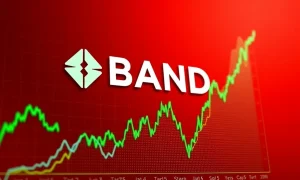South Korea stands at a regulatory crossroads where conflicting crypto regulation approaches threaten its position as Asia’s financial innovation hub. The nation’s financial authorities present contradictory policies that confuse investors and stifle market growth.
Understanding South Korea’s Crypto Regulation Landscape
South Korea’s crypto regulation framework demonstrates significant internal conflicts. The Financial Services Commission promotes innovation while the Financial Supervisory Service maintains restrictive policies. This contradiction creates market uncertainty and hampers development.
The FSC Innovation Push Versus FSS Restrictions
The Financial Services Commission actively encourages blockchain adoption and digital asset innovation. Conversely, the Financial Supervisory Service upholds its 2017 institutional ban on cryptocurrency trading. This regulatory conflict creates operational challenges for businesses.
Impact on Investor Confidence and Market Trust
Conflicting crypto regulation signals erode investor trust significantly. Market participants face uncertainty about legal compliance and policy direction. This environment discourages both domestic and international investment.
- Policy inconsistency creates compliance difficulties
- Market volatility increases due to regulatory uncertainty
- Innovation stagnation occurs amid conflicting guidance
Regional Competition and Leadership Implications
Other Asian nations implement coherent crypto regulation strategies that attract investment. Japan and Singapore developed clear regulatory frameworks that support growth. South Korea risks losing its competitive advantage without policy alignment.
Potential Solutions for Regulatory Harmony
Experts recommend establishing a unified crypto regulation approach through inter-agency collaboration. Creating a dedicated digital assets division could resolve policy conflicts. Clear guidelines would benefit all market participants.
Future Outlook for South Korea’s Crypto Market
The resolution of crypto regulation conflicts will determine South Korea’s financial future. Coordinated policies could restore market confidence and attract global investment. The current situation requires urgent attention from financial authorities.
Frequently Asked Questions
What are the main conflicting crypto regulation policies in South Korea?
The FSC promotes blockchain innovation while the FSS maintains its 2017 institutional trading ban, creating policy contradictions.
How do these regulatory conflicts affect investors?
Investors face uncertainty about legal compliance and market stability, reducing confidence and investment activity.
What impact does this have on South Korea’s financial leadership?
Conflicting policies threaten South Korea’s position as Asia’s financial innovation hub, allowing competitors to gain advantage.
Are there solutions to resolve these regulatory conflicts?
Experts recommend inter-agency collaboration, unified policies, and dedicated digital asset regulatory divisions.
How does South Korea’s situation compare to other Asian markets?
Japan and Singapore implemented clearer crypto regulation frameworks, attracting more investment and innovation.
What is the potential timeline for regulatory resolution?
Market observers expect policy changes within 12-18 months as pressure mounts for coherent crypto regulation.








